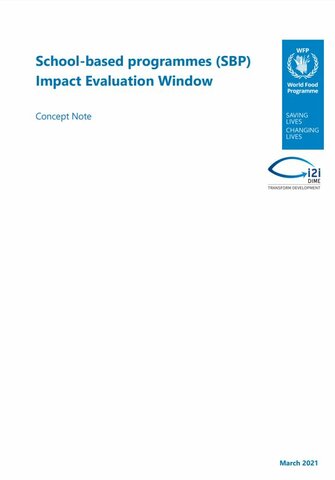
Such interventions are intended to promote health, nutrition, learning, and the creation of human capital, while at the same time, stimulate local economies when school meals are procured locally. There is a growing need for more evidence to inform the trade-offs in school-based programmes' designs and implementations. For example finding the optimal balance between cost, size, frequency, and meals’ composition; whether meals should be provided on-site, as a take-home ration, or via voucher/cash transfer; whether the benefits of locally procuring food is greater relative to direct import. There is also a growing need to better understand how different school-based programme designs can play an important role as a social safety net protecting boys and girls during shocks. To generate evidence that can help country offices to make informed policy decisions, WFP's Office of Evaluation (OEV) has developed this impact evaluation window in collaboration with the School-Based Programmes (SBP) division and Development Impact Evaluation (DIME) unit at the World Bank
| Document | File |
|---|---|
| Concept note |
PDF | 588 KB
Download
|
